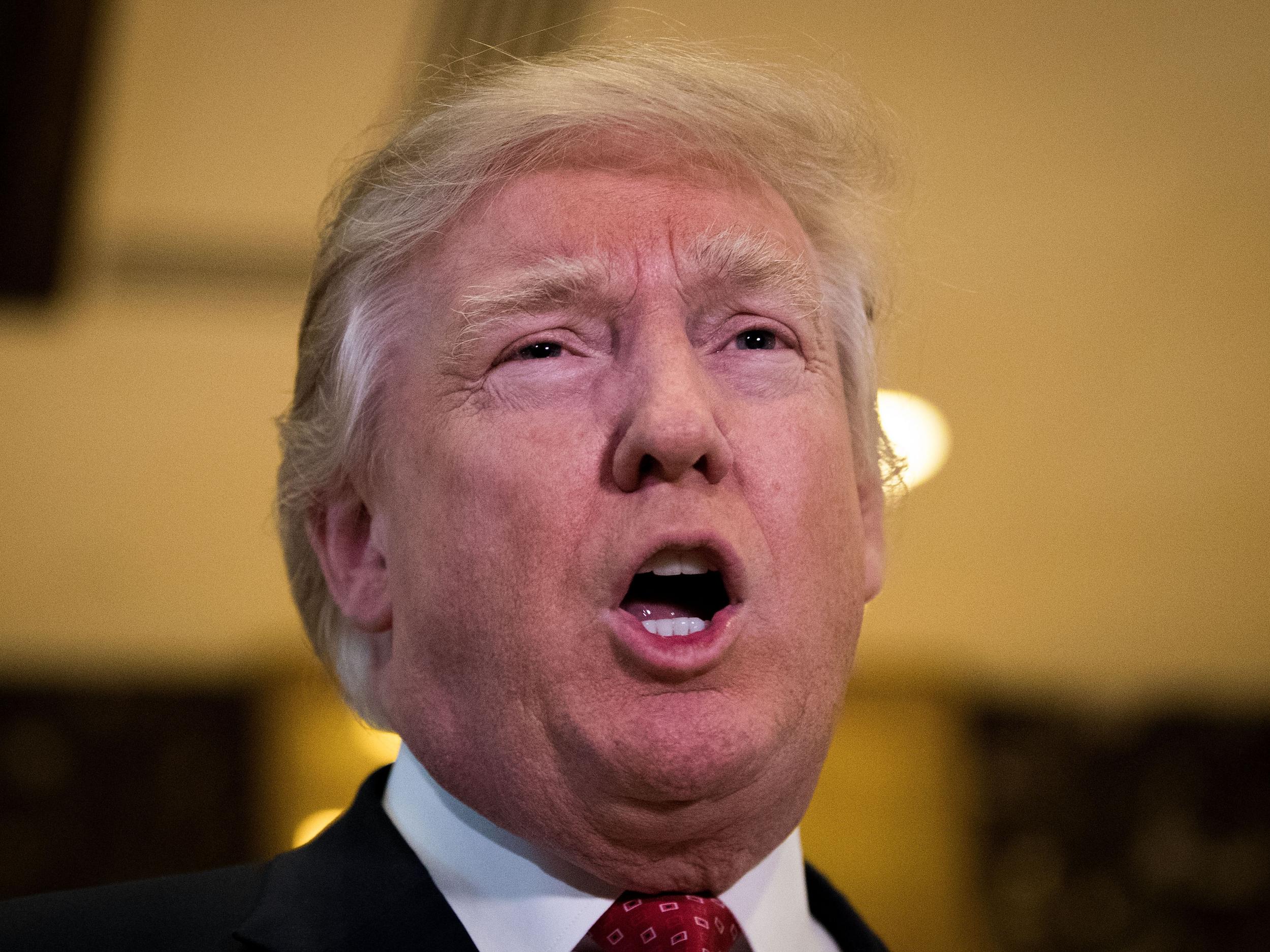Donald Trump will still profit from his businesses after his presidential inauguration
'I could actually run my business and run government at the same time,' the President-elect says

Donald Trump has said he will continue to profit from his international business empire after he enters the White House - a precedent-breaking decision that has elicited fierce criticism from members of the public and ethics experts alike.
The President-elect said he would hand control of his company to his two eldest sons, but that he will retain an ownership stake in a trust that holds his business assets while he is President — a deal that watchdogs said will not prevent conflicts of interest.
He also revealed that – while making preparations for office – he was still involved with making decisions for the business, saying he had rejected a $2bn (£1.65bn) development deal in Dubai over the weekend.
Unlike other US government officials, the president is not legally required be free of conflicts of interest.
“I could actually run my business and run government at the same time," Mr Trump said during the news conference.
"I would be able to do that if I wanted to," he added.
Mr Trump is under pressure to distance himself from his businesses before he moves into the White House on 20 January.
The Republican told the conference he would stand down from all roles overseeing his hotels, golf courses and hundreds of other businesses and move his assets into a trust in an attempt to illustrate that he was not making decisions as President that would personally benefit his personal finances.
The company will also no longer enter into new arrangements abroad while Mr Trump is in office, although fresh deals in the US will still be made.
The decision to stop new ventures oversees was one of Mr Trump's few concessions to advisors at The Office of Government Ethics, which advises incoming presidents and their administration officials.
It had warned the real estate development and licencing company's international activities could expose him to conflicts of interest. Foreign officials might try to ingratiate themselves by cutting deals with his company, it said.
It added that the incoming President has not done enough to distance itself, but it can only advise and not enforce the President-elect to divest his assets.
Its director Walter Shaub, said the President-elect should sell off his businesses and put the earnings in a blind trust overseen by an independent accountant.
"I don't think divestiture is too high a price to pay to be the president of the United States of America," he added.
President Donald Trump life in pictures
Show all 16But both the President-elect and his lawyer have strongly defended his decision not to sell the company.
Sheri Dillon, an an attorney with the firm Morgan Lewis & Bockius, said it would create its own ethical questions about whether he was receiving a fair price.
She said moving too quickly could create a "fire sale" environment that devalued the company to which he has dedicated his adult life.
"President-elect Trump should not be expected to destroy the company he built," Ms Dillon said.
Instead, the Trump Organisation said it will donate the profits of foreign governments who stay at the Republican's hotels to the US treasury, in an effort to put distance between the Mr Trump's hotel business and his foreign policy as President.
But the many ethics experts have been condemned the move, calling it a PR stunt that would be impossible to enforce.
The Associated Press and Reuters contributed to this report
Subscribe to Independent Premium to bookmark this article
Want to bookmark your favourite articles and stories to read or reference later? Start your Independent Premium subscription today.

Join our commenting forum
Join thought-provoking conversations, follow other Independent readers and see their replies